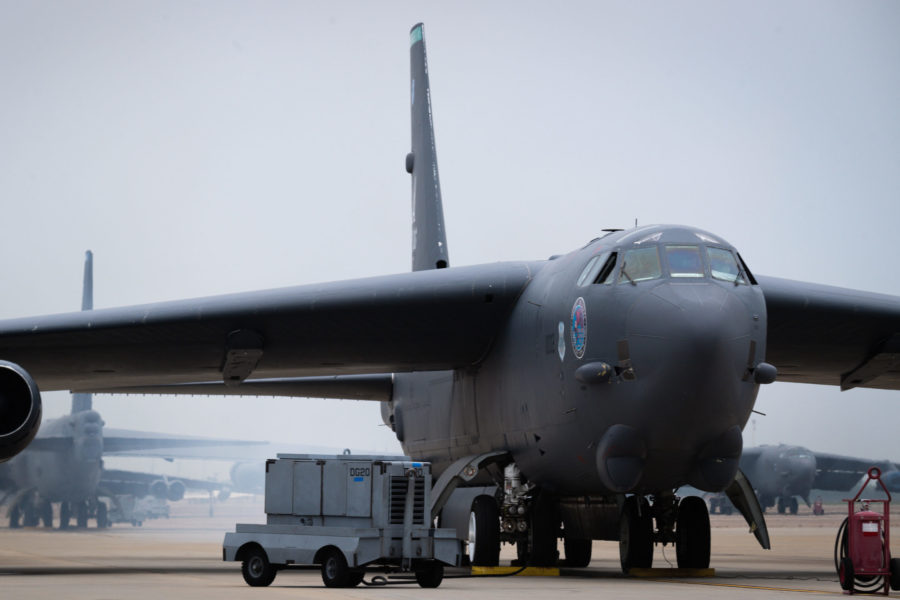The total program cost of re-engining the B-52H fleet of 76 airplanes will be about $11 billion, a 9 percent jump over a previous estimate because of more up-to-date data, Acting Air Force Secretary John P. Roth told lawmakers June 17.
Roth told the Senate Armed Services Committee that recent press reports of a 50 percent increase are incorrect. This new number reflects information obtained from virtual prototyping of the system, along with “a reassessment of the requirement” and the inherent complexity of integrating a modern, commercial engine onto the “aging platform that the B-52 is,” he said.
The cost increase also takes into account the “realities of buying from the current industrial base,” Roth said.
The Air Force was not immediately able to provide precise numbers, or whether the 9 percent is a base year or then-year cost.
Roth also said the B-52 Commercial Re-Engining Program is one of USAF’s “Pathfinder” programs for using new congressional authorities to conduct “mid-tier” acquisitions, meaning the programs skip time-consuming steps that add little or no value. Using this approach will shave “about three years” off the B-52 CERP, he said. However, he said the approach requires “rigorous metrics” to determine if the approach is working and the willingness to change course if it’s not.
The CERP is also employing a paperless, digital, side-by-side comparison to evaluate various engine candidates for the program. A request for proposals on the CERP is expected to be released this summer.
The B-52 program was initially estimated to cost about $10 billion, but Air Force Global Strike Command and Air Force Materiel Command have said the program will likely “pay for itself” through an expected 30 percent gain in fuel efficiency and sharply reduced maintenance requirements. The engines likely will never be removed from their wings because the aircraft are expected to retire before the engines need an overhaul.
AFGSC boss Gen. Timothy M. Ray said last week the CERP could produce a disproportionate reduction in the need for tanker support of the B-52, as much as a 50 percent drop “depending on the scenario.”
The CERP is part of a number of B-52 improvements, including a replacement of its radar, connectivity upgrades, and a new digital backbone for the aircraft. The FY22 budget request includes $804 million for B-52 improvements, including CERP, the radar modernization program, adding Link 16 support, and mission data gear.
In the June 17 hearing, USAF Chief of Staff Gen. Charles Q. Brown Jr. said the CERP is one of the ways the Air Force is answering the Biden administration’s directive for the Pentagon to do its part to address climate change, given the sharp reduction in its fuel consumption if the program is successful.


